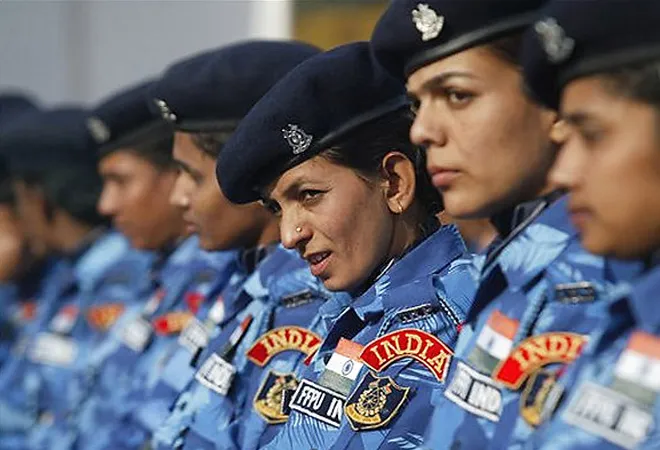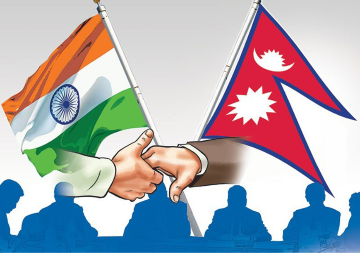
Over the last few decades, the dynamics of armed conflict have changed. The shift from inter-state to intra-state conflicts has meant that the vast majority of victims are civilians, and the emergence of non-traditional tactics of war such as sexual violence in conflict has further increased their insecurity. Systematic rape has been used as a weapon of war in ethnic cleansing campaigns by militias in
Rwanda and
the former Yugoslavia and more recently by terrorist groups such as the
ISIS.
Terrorists and militias are not the only perpetrators of sexual violence. United Nations (UN) peacekeepers have also taken advantage of conflict zones and routinely exploit vulnerable populations by engaging in
sexual exploitation and abuse (SEA). It is abhorrent that the blue helmets, who are seen as symbols of peace, become another source of insecurity for those they are mandated to protect. Statistical analysis demonstrates that SEA is a constant and endemic problem within UN peacekeeping, with an average of
50 cases a year since 2010, and
31 cases filed between July and September 2017 itself. This is particularly alarming since
only a fraction of cases are reported, given most victims do not feel comfortable to seek redress.
Indian UN peacekeepers have not been immune from allegations of SEA, with
three cases of SEA registered against them between 2010 and 2013. However, it is important to note that while being the one of the largest contributor of troops, with almost
200,000 troops ning 50 missions, India has one of the lowest cases of SEA and has not faced any allegations after 2013. This has been achieved by ensuring a strict adherence to the UN’s
‘zero tolerance policy’ against SEA and making considerable changes to the way Indian peacekeepers are recruited, trained and prosecuted. This suggests that the Indian experience may indeed have much to offer by way of lessons to the rest of the world.
Recruitment and vetting
Speaking on ending sexual violence in conflict on 5 February, Vice Chief of Staff Lt Gen Sarath Chand pledged to increase women representation in UN peacekeeping from
four to eight percent by the end of 2018, arguing that female participation is crucial ‘for lasting peace and security’. This pledge is one of India’s many efforts at incorporating gender in its recruitment as a way of combatting SEA. India has been seen as a role model in gender mainstreaming in peacekeeping -- after deploying the first Female Formed Police Unit (FFPU) in Liberia in 2007. India further achieved its pledge to ensure that
15 per cent military observers are women in 2017. Female peacekeepers may be less likely to engage in SEA and may even discourage their male counterparts from doing the same. However, solely increasing female peacekeepers is not a panacea to SEA and scholars have noted that
cultivating a culture of gender equality in domestic cultures, particularly in the military is more effective in preventing abuse. India still
does not allow women in combat roles within the Indian army. However,
General Bipin Rawat’s commitment to break the gender barrier and recruit women is a promising step in achieving true gender parity.
Stringent pre-deployment vetting measures have also been put in place following the accusations. India has adhered to the vetting guidelines of the
Conduct and Discipline Unit (CDU), ensuring that any military, police and civilian officer convicted of any misconduct, not just limited to SEA, is not deployed in peacekeeping missions. However, the emphasis on conviction as opposed to allegation is potentially problematic. For example, despite having a zero tolerance policy on SEA, India has selected officials to join the United Nations Police (UNPOL) who have been
accused of rape and torture. Furthermore, India’s policy of deploying peacekeepers who have served in areas where the UN has had concerns about human rights violations raises serious concern on their background, as many have been documented engaging in
extrajudicial executions and the arbitrary use of force by the UN itself. Therefore, India must reassess its vetting measures and ensure that without a shadow of doubt, every serving peacekeeper has a clean record.
Training
Since the majority of peacekeepers are still men, mandatory pre-deployment training has become a key tool in the implementation of the UN’s zero tolerance policy against SEA. India has enhanced its
pre-deployment training efforts by including sessions on gender sensitisation, UN standards of conduct and reporting mechanisms specifically against SEA for its own peacekeepers, and encouraged peacekeepers from across the world to do the same.
The Centre for United Nations Peacekeeping (CUNPK) has led India’s pre-deployment training efforts by conducting several courses with both male and female participants from within and outside India, and its pilot course has been further replicated by three other countries. The centre has also
partnered with the Peace Operations Training Institute (POTI) to provide online pre-deployment courses in a range of languages to ensure other nations have the resources to train their own peacekeepers. The importance of pre-deployment training has been highlighted by the2015 Office of Internal Oversight Services’ (OIOS) audit of the UN Mission in the Central African Republic (CAR) following horrific allegations of sexual abuse of children. The report revealed that a shocking 57 percent of personnel had not attended mandatory pre-deployment training and thus ‘were not fully aware of the UN standards of conduct against SEA and did not conduct themselves accordingly’.
Prosecution
From the data presented above, it is clear that training and vetting are not enough and new cases are still reported almost every month. A significant hurdle is the
absolute immunity UN personnel enjoy due to a
Memorandum of Understanding (MOU) between the UN and Troop Contributing Countries. Because of this agreement, perpetrators cannot be prosecuted for crimes committed in the host state, shifting the responsibility onto the TCC. India has been particularly proactive in this regard, ensuring that
all three cases of SEA were fully investigated and the guilty parties punished.
India has also contributed to the UN’s efforts to prosecute SEA offenders from other TCCs.
Secretary Antonio Guterres’ ‘new approach’ against SEA saw a renewed commitment to enforce stronger measures against perpetrators while adopting a victim centred approach to combating SEA. This led to the establishment of the Trust Fund in Support of Victims of Sexual Exploitation and Abuse which assists in the recovery of victims and
India was the first country to provide financial contributions. India also gave funding to the
Residual Special Court for Sierra Leone which tried and prosecuted individuals accused of child abuse and forced marriages.
India’s response to SEA suggests that it is committed to ending abuse not only within its own peacekeepers but throughout the entire peacekeeping operation. India should continue to lead by example in areas of training and prosecution and use its leverage as the only large peace-keeping contributor with a clean record to further push for peacekeeping reforms.
The author is a Research Intern at Observer Research Foundation, New Delhi
The views expressed above belong to the author(s). ORF research and analyses now available on Telegram! Click here to access our curated content — blogs, longforms and interviews.



 Over the last few decades, the dynamics of armed conflict have changed. The shift from inter-state to intra-state conflicts has meant that the vast majority of victims are civilians, and the emergence of non-traditional tactics of war such as sexual violence in conflict has further increased their insecurity. Systematic rape has been used as a weapon of war in ethnic cleansing campaigns by militias in
Over the last few decades, the dynamics of armed conflict have changed. The shift from inter-state to intra-state conflicts has meant that the vast majority of victims are civilians, and the emergence of non-traditional tactics of war such as sexual violence in conflict has further increased their insecurity. Systematic rape has been used as a weapon of war in ethnic cleansing campaigns by militias in  PREV
PREV


